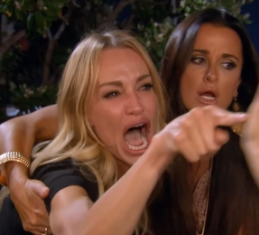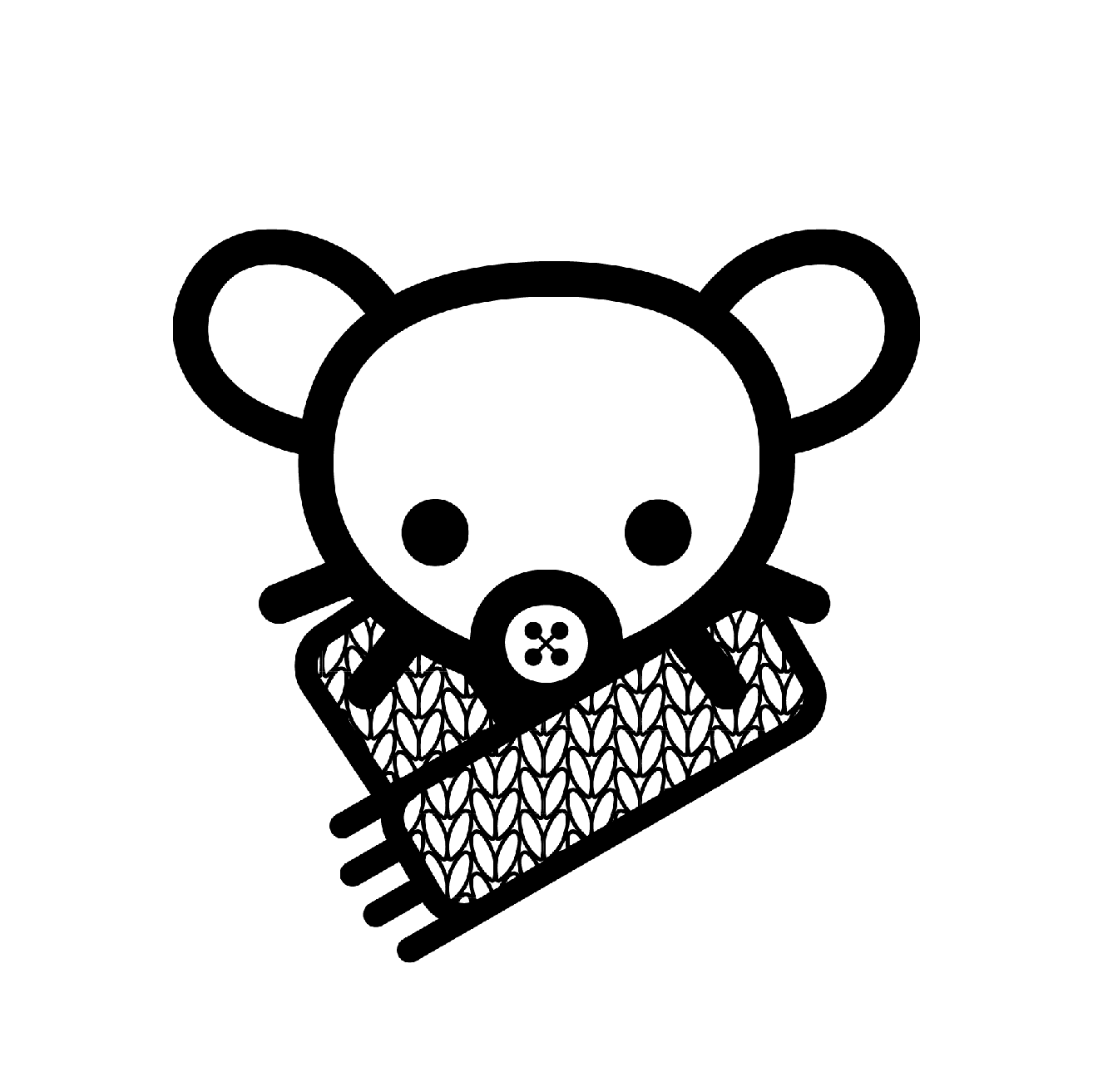
I thought I had a friendly tone and was being nice. I really did not intend to come off as aggressive. Rereading this I see how it can come off sarcastic and condescending instead of the friendly informational tone I was going for. Sorry.

I thought I had a friendly tone and was being nice. I really did not intend to come off as aggressive. Rereading this I see how it can come off sarcastic and condescending instead of the friendly informational tone I was going for. Sorry.

kbin.cafe
If you click my profile, you can see both my username and the instance I come from!


Thank you for trying to think of us, but I wasn’t asking for help at all so I’m not sure why I was tagged with @. I also barely use plugins.


Why is this tagged as being written in Japanese?

If you want to know about or hear discussion around the game or something but are around other people without headphones, quietly reading what Redditors have to say is considered more polite than putting on the sports radio for everyone else to hear.

I’m a woman, and although some technological things are interesting I’m not quite a tech nerd and definitely not a Linux one. Linux seems cool but I’m too lazy to make the jump. MacOS and/or Windows serve well enough for me.
I also have several different Threadiverse accounts and try to post frequently in niche communities I’m interested in, although not so frequently I become the only contributor and it feels spammy.


This is answered on the Obsidian help page. TL;DR: it automatically updates. Version is in the upper left corner of Settings -> About.


Remember the eleven separate times (and two HobbyDrama posts) where people leaked classified military details because they didn’t like the inaccuracy of the military vehicles in the video game War Thunder? It happened again.
Probably going to do a writeup on this, including both this new leak and the old ones that the two HobbyDrama posts didn’t cover. Right now it’s breaking drama so I need to wait.


Taking photographs and using your phone during a theatrical performance is usually considered bad theatre etiquette. These aren’t obscure rules used by a small group of theatre snobs to tell who’s a newbie and who’s a fellow member of the elite. They’re announced to everyone attending the show (sans late arrivals and people using the bathroom). Most shows, including Beetlejuice, have a pre-show announcement that happens right before the show begins. The announcement says something like “the use of any recording device is strictly prohibited” and asks the audience to turn off their cellphones.
I normally wouldn’t do this, but because the Fediverse is small and it’s semi-relevant… !musicals. There’s currently a bug that makes !communityName@instancelinks like the one I just wrote not always federate out properly from Kbin, so here are some alternative links to the same place: @musicals and https://kbin.social/m/musicals.


deleted by creator


I don’t consciously make these calculations either, but what you just described sounds exactly like how I choose what to click on. Also came here for suggestions!
I’ll say that I’ve looked up hobbies I enjoy but don’t think about much so I can boost my engagement on the Fediverse. Normally I wouldn’t bother, but I want to help this place grow, so I’ve let in things that I have a milder interest in as well as my usual interests. This is also how I get variety in the posts I see, as I usually stick to /sub. When I wander out, it’s on purpose and to a specific known community, because /all usually has some depressing political news or ragebait that would get me to outrage-click. I’m here to have a good time, not to doomscroll or get angry. Kbin has no algorithm intended to keep us scrolling on it, but those things do generate the most engagement, so it’s only natural they end up on /all frequently enough (though not as frequently as they’d appear on the popular page on Reddit) that I feel a desire to avoid /all.


If you’re on mobile, go to the end of the crochet pattern. Under it will be a rectangle saying Crochet Patterns and another rectangle sating Knit Patterns. Click the rectangle saying Knit Patterns. There you will find eight patterns, one of which is garter. I intend to do all the patterns. I started with garter stitch.
deleted by creator


Started on a rectangle today. Trying to figure out the gauge. At my tightest I still expanded past the 7 inch mark with size 7 needles and yarn that’s probably a lighter weight than asked for (bought it forever ago and do not have the label). Started over with 30 stitches instead of the suggested 35 and it seems okay now.


deleted by creator
What pattern is this? I figure I should learn how to cable sometime, and if you used this as your intro to cabling it’s probably alright for people new to it.


I feel like I learned this difference at some point but totally forgot about it. Thank you for your explanation, I’ll definitely remember this time!


From my instance on kbin I already had two clickable links. Did they not work on lemm.ee?


“We believe that users should have a say in how their attention is directed, and developers should be free to experiment with new ways of presenting information,” Bluesky’s chief executive, Jay Graber, told me in an email message.
Of course, there are also challenges to algorithmic choice. When the Stanford political science professor Francis Fukuyama led a working group that in 2020 proposed outside entities offer algorithmic choice, critics chimed in with many concerns.
Robert Faris and Joan Donovan, then of Harvard’s Shorenstein Center, wrote that they were worried that Fukuyama’s proposal could let platforms off the hook for their failures to remove harmful content. Nathalie Maréchal, Ramesh Srinivasan and Dipayan Ghosh argued that his approach would do nothing to change the some tech platforms’ underlying business model that incentivizes the creation of toxic and manipulative content.
Mr. Fukuyama agreed that his solution might not help reduce toxic content and polarization. “I deplore the toxicity of political discourse in the United States and other democracies today, but I am not willing to try solving the problem by discarding the right to free expression,” he wrote in response to the critics.
When she ran the ethics team at Twitter, Rumman Chowdhury developed prototypes for offering users algorithmic choice. But her research revealed that many users found it difficult to envision having control of their feed. “The paradigm of social media that we have is not one in which people understand having agency,” said Ms. Chowdhury, whose Twitter team was let go when Mr. Musk took over. She went on to found the nonprofit Humane Intelligence.
But just because people don’t know they want it doesn’t mean that algorithmic choice is not important. I didn’t know I wanted an iPhone until I saw one.
And with another national election looming and disinformation circulating wildly, I believe that asking people to choose disinformation — rather than to accept it passively — would make a difference. If users had to pick an antivaccine news feed, and to see that there are other feeds to choose from, the existence of that choice would itself be educational.
Algorithms make our choices invisible. Making those choices visible is an important step in building a healthy information ecosystem.
I’m still new enough I can’t make needle recommendations, but my first project was a garter stitch scarf. 10 stitches on size 13 needles… yeah… that wasn’t much of a scarf.
Similar experience to you with learning how to crochet. Right now all I can do is a chain stitch. And nothing else. No adding any height to the chain, just making a single long chain.